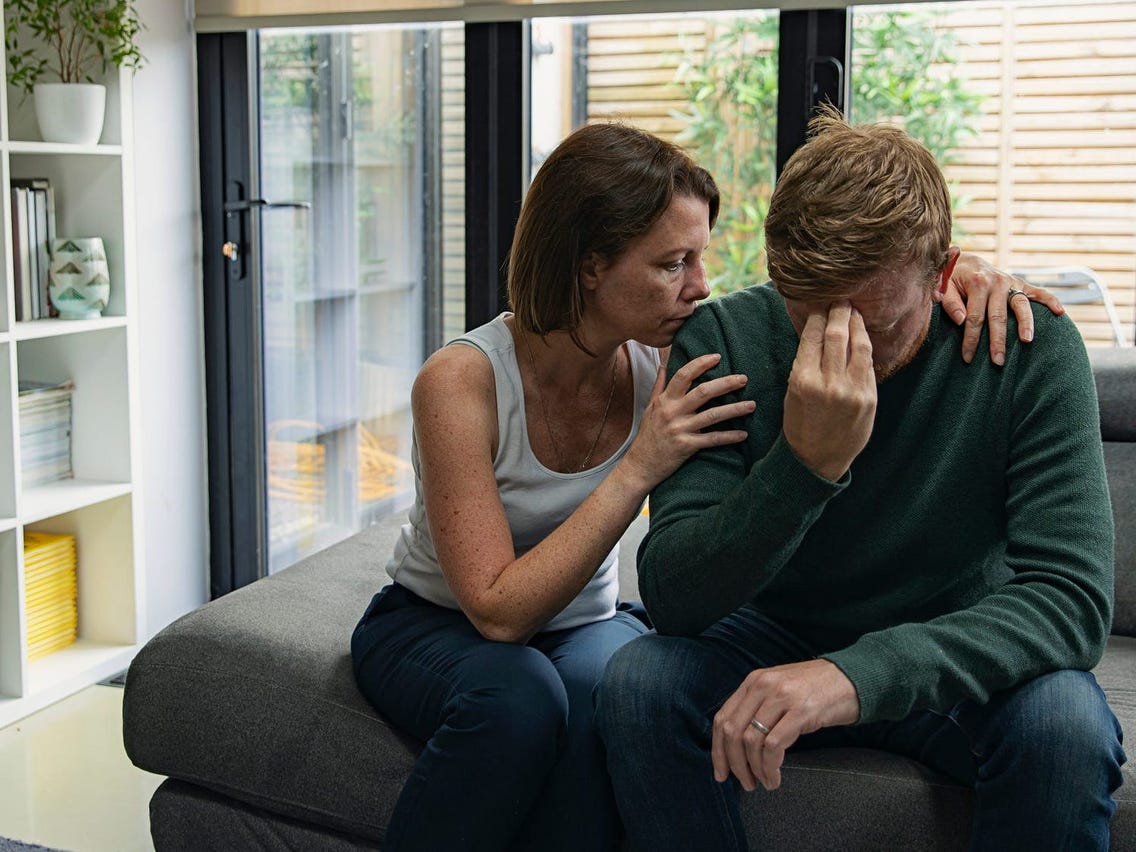Supporting Someone With Anxiety
Living with someone who experiences excessive anxiety can put a burden on a relationship.

Anxiety disorders are prevalent, and they can significantly negatively impact interpersonal interactions.
It's crucial to validate someone's feelings, but insulating them from their distress might backfire, strengthening their fear unknowingly.
Anxiety-management techniques such as confronting one's concerns and focusing on positive experiences might be beneficial.
Supporting someone you love who suffers from anxiety can strain a genuine relationship.
Anxiety disorders are the most frequent mental health issue, with an estimated 290 million people suffering from one in 2018. Anxiety disorders can affect connections with family members and friends, but they put a strain on love relationships in particular. Family activities, economics, social events, emotional well-being, and intimacy can all be impacted in couples where a loved one has anxiety.
Anxiety and relationships
Anxiety in relationships can manifest itself in a variety of ways. Some people who suffer from anxiety become overly reliant on their spouses, wanting reassurance and support all of the time. This can show as insecurity, jealousy, or fear of their partner abandoning them. Others go the other way, avoiding conflict and finding it difficult to open up or be vulnerable. This can manifest as dissatisfaction, frustration, or wrath against one's partner.
Supporting someone you love who is suffering from anxiety can be challenging, and it can be difficult to know how to assist them best. Understanding that anxiety is prevalent is critical: Anxiety is a common occurrence in humans. The major distinction between an anxiety disorder and the anxiety we all experience is one of severity. An anxiety disorder is characterized by a high level of anxiety that can interfere with one's ability to function and/or create severe distress. Another way to say it is that the difference is in the quantity rather than the quality of anxiety.
How to help someone with anxiety
Because anxiety is universal, it is recommended that you support someone with an anxiety condition in the same way that you would support a loved one who is experiencing anxiety: Try to comprehend their situation, affirm what they're going through, and encourage them to face their challenges on their own.
This type of assistance relies heavily on validation, which entails embracing and acknowledging another person's beliefs or feelings. Validation entails letting them know that you are aware of their difficulties. You may not understand why they are concerned, but dismissing it with phrases like; “That's nothing to worry about” or “Get over it”, can exacerbate their anxiety and cause them harm. Instead, say something like, "I see that this is incredibly difficult right now," to show that you're attempting to comprehend their situation.
There are other ways to support someone with anxiety.
If they have anxiety, one of the most important things you can do to help them is to educate yourself. Reading reputable publications or joining a family education and support group are two options. If they're in treatment, inquire if they and their therapist are willing to have you attend one of their sessions.
When living with someone who experiences excessive anxiety, it's crucial not to shelter them from pain, which may unintentionally encourage their anxiety. Accommodation is a term used to describe attempts to lessen a loved one's worry. It can include problem-solving for your partner, excessive reassurance, or avoiding circumstances that cause anxiety.
Accommodating their fears comes from a good place—we don't want to see our loved ones suffer—but practising facing the situations that cause anxiety is one of the best methods for someone to overcome anxiety. We rob our loved ones of the opportunity to learn how to cope with situations and grow self-confidence when we accommodate their worry by paving the route for them. Accommodation can help to keep anxiety at bay in this way.
Rather than accepting anxiety, encourage someone to confront the issues they've been avoiding. It is possible to be supportive of someone while also assisting them in gaining exposure to and overcoming the things that cause them stress in this way.






